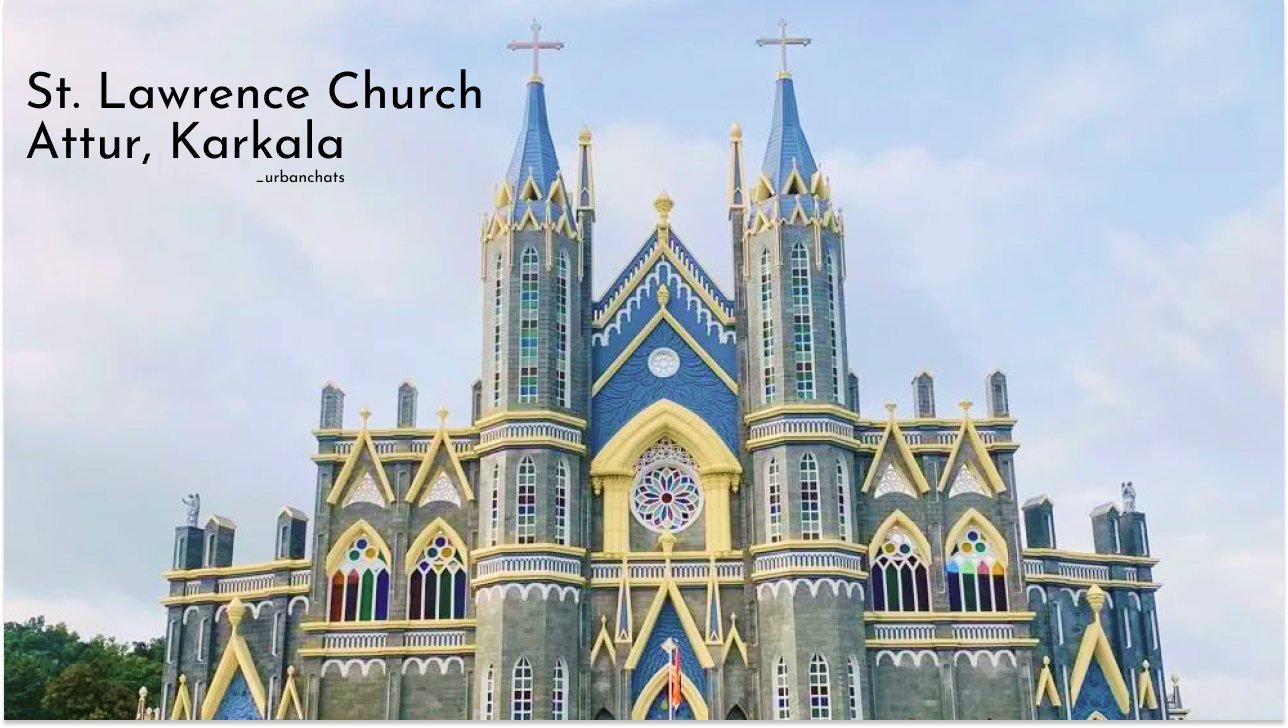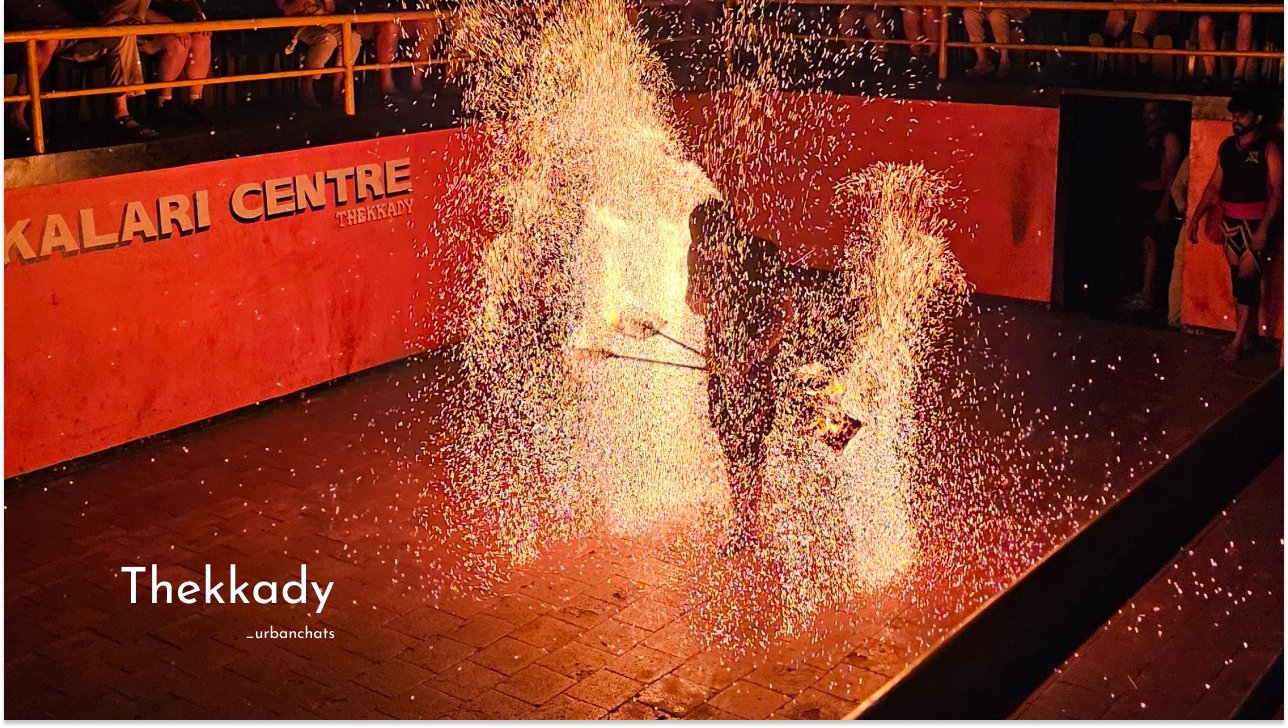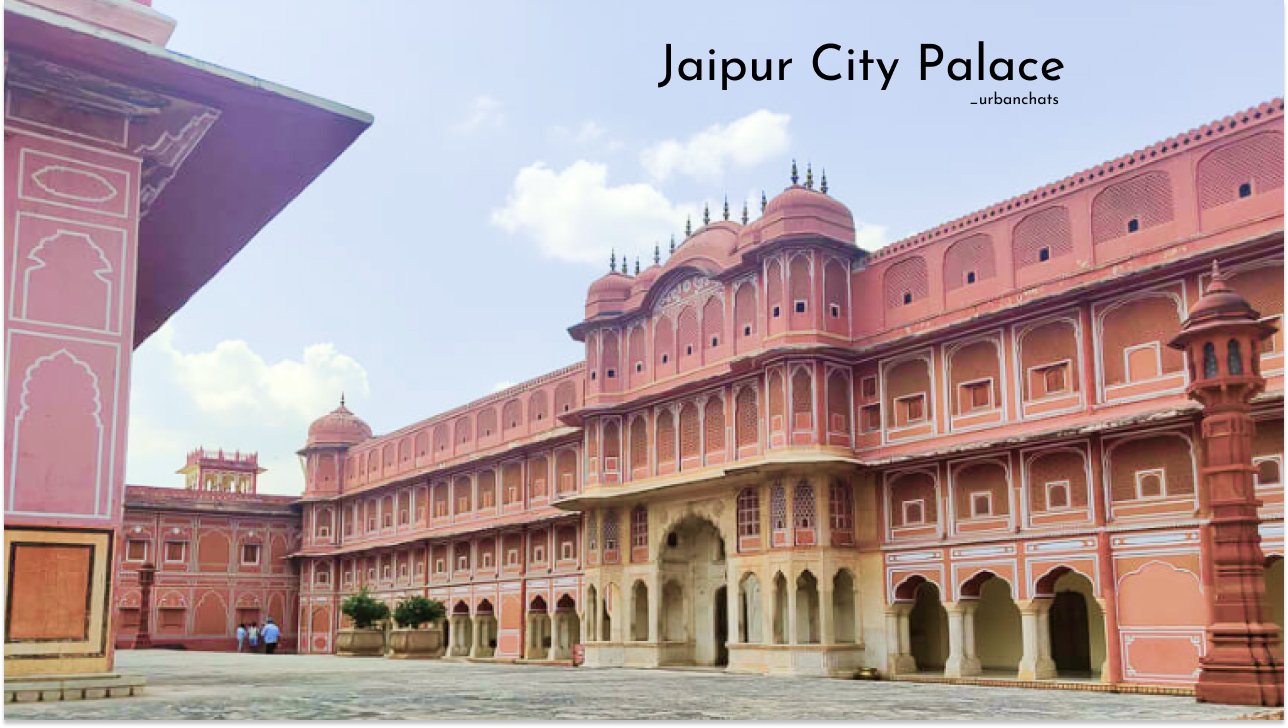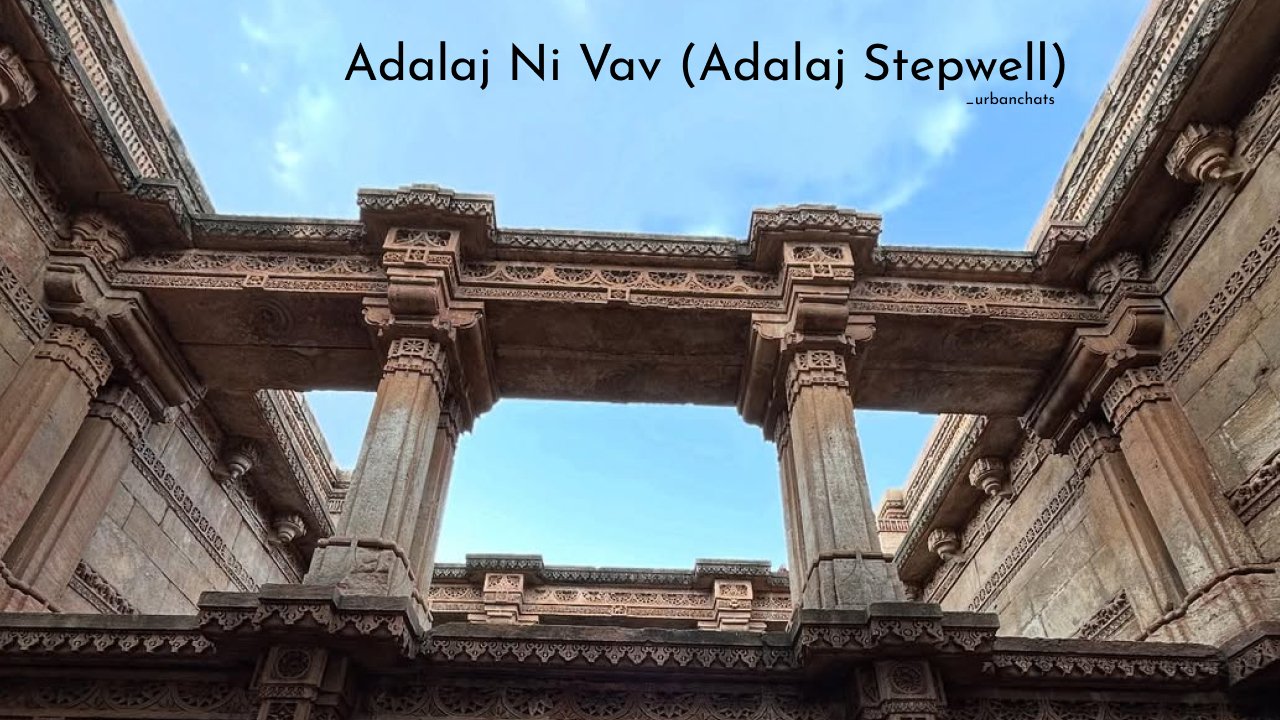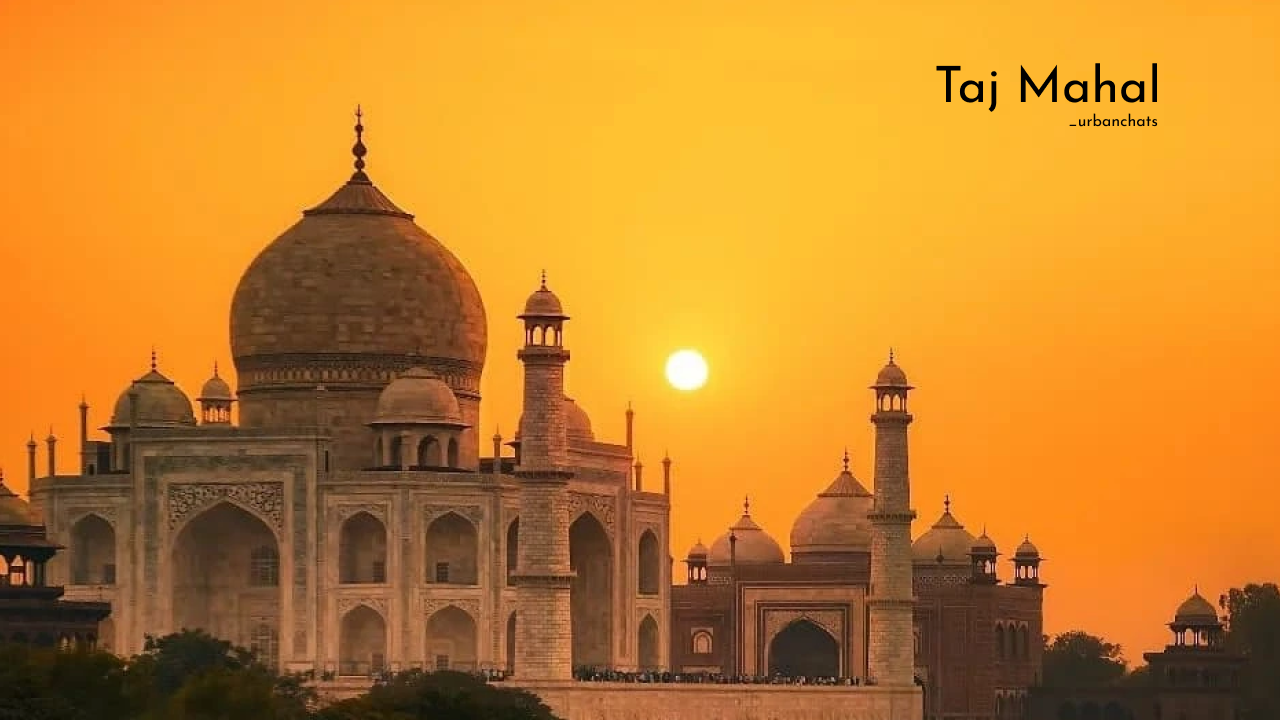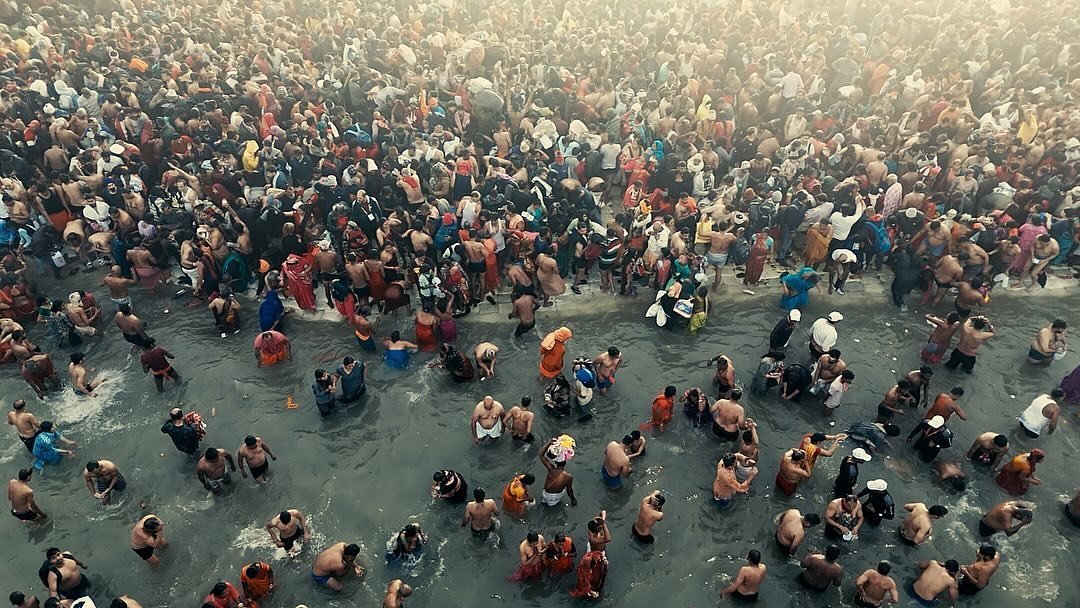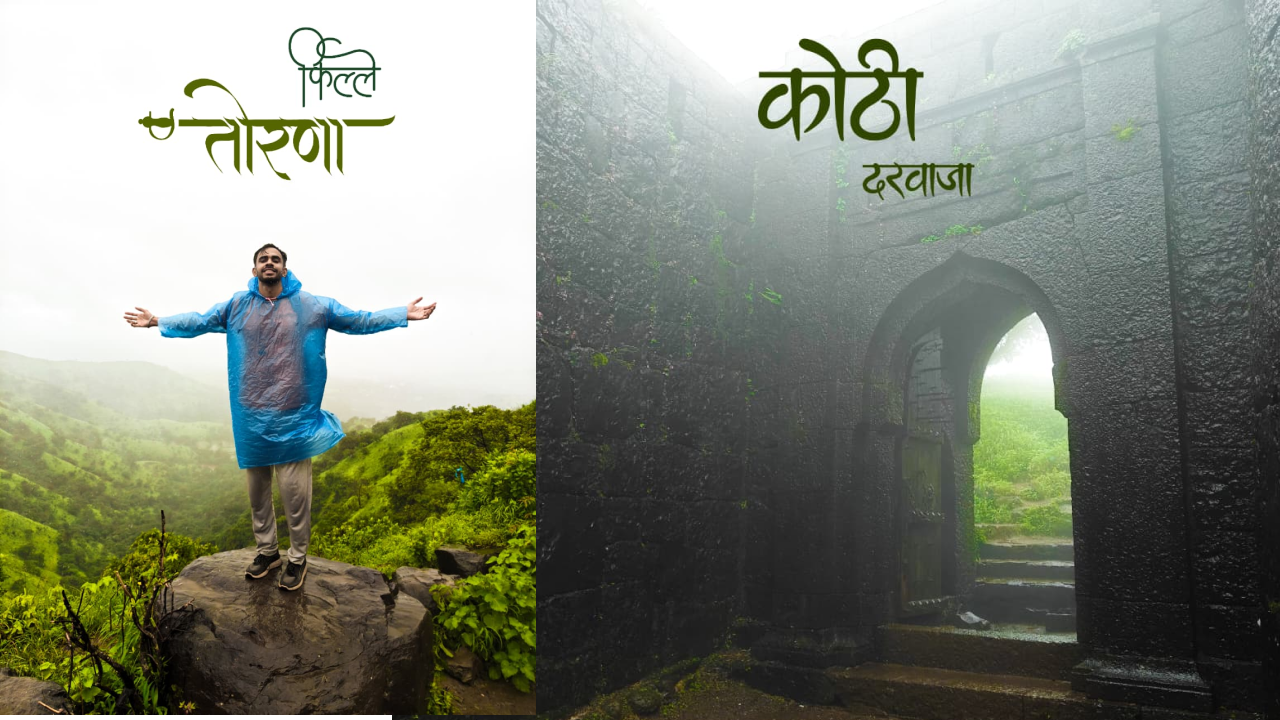Diwali 2024 is fast approaching, and it’s time to embrace the joyous spirit of India’s most celebrated festival. Known as the “Festival of Lights,” Diwali brings together families, friends, and communities in a vibrant celebration of light triumphing over darkness. This year, Diwali will be observed on October 31, 2024, filling homes across India and beyond with warmth, tradition, and positivity. Let’s delve into the significance, rituals, and beauty of Diwali, and explore why this beloved festival continues to captivate hearts worldwide.
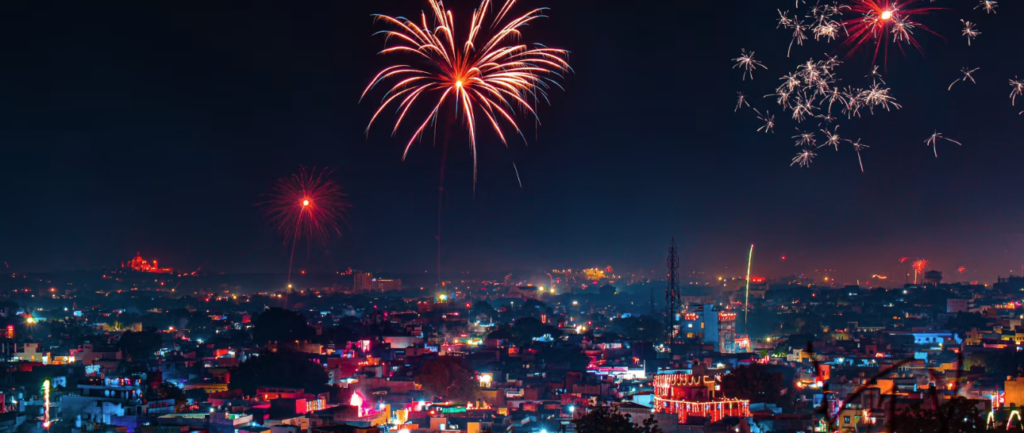
The Significance of Diwali
Diwali, or Deepavali, holds profound cultural and spiritual significance in Hinduism and beyond. This five-day festival honors the return of Lord Rama, accompanied by his wife Sita and brother Lakshman, to the city of Ayodhya after a 14-year exile. It’s a celebration of good triumphing over evil, and light banishing darkness, symbolized by the illuminating of diyas (oil lamps) that brighten homes and streets.
This spiritual message transcends religious boundaries, making Diwali a truly universal celebration. The festival is celebrated with equal enthusiasm by Jains, Sikhs, and Buddhists, each group observing unique traditions that reinforce Diwali’s central message of love, unity, and hope.
Key Dates to Remember for Diwali 2024
- October 30 – Deepotsav and Hanuman Jayanti
A day before Diwali, Ayodhya will host Deepotsav, a grand spectacle of lights. This year, it coincides with Hanuman Jayanti, celebrating the birth of Lord Hanuman, adding spiritual depth to the festivities. - October 31 – Diwali (Main Day)
Diwali night is the highlight of the celebrations, marked by prayer, diyas, rangoli, and the sharing of sweets with loved ones. The atmosphere is alive with fireworks and the sounds of joyous gatherings. - November 14 – Dev Diwali in Kashi (Varanasi)
In Varanasi, Dev Diwali honors the divine, with thousands of diyas illuminating the Ganga ghats in a breathtaking sight. It’s a unique opportunity to witness India’s cultural heritage in one of its holiest cities.
How Diwali is Celebrated
The days leading up to Diwali are filled with preparations and anticipation. Families clean their homes, decorate with rangoli, and light oil lamps to attract prosperity and happiness. Here are some of the most beloved Diwali traditions:
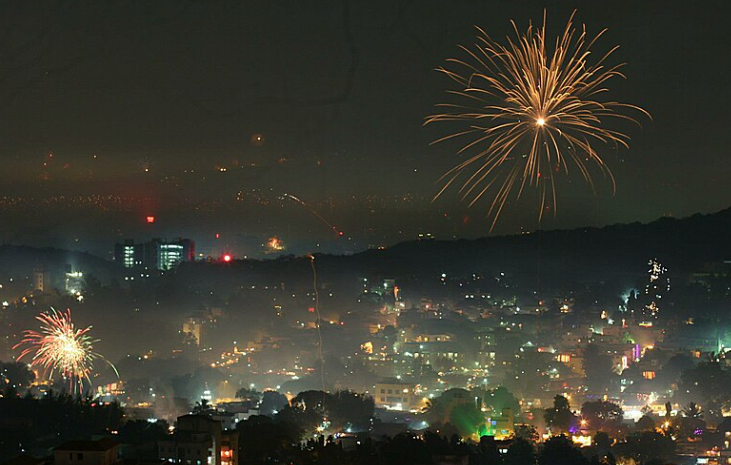
- Diyas and Lights
Lighting diyas is at the heart of Diwali, symbolizing the victory of light over darkness. Homes, temples, and streets are adorned with small oil lamps, and fairy lights twinkle everywhere, creating a warm and inviting atmosphere. - Rangoli Creations
Beautiful rangoli patterns are crafted at entrances, using colored powders, flower petals, and rice. These intricate designs are said to welcome goddess Lakshmi, the deity of wealth and prosperity, into homes. - Lakshmi Puja
On Diwali night, families perform Lakshmi Puja, a ritual dedicated to inviting wealth, fortune, and prosperity into the household. It’s an opportunity to offer gratitude for blessings received and seek divine protection for the coming year. - Bursting Firecrackers
While the use of firecrackers has become more mindful due to environmental awareness, they remain an important part of Diwali for many. The sound and spectacle of fireworks are believed to drive away evil spirits, filling the night with light and sound. - Feasting and Sharing Sweets
A festive feast is a must on Diwali! Families prepare traditional delicacies like laddoos, barfis, and gulab jamuns. Sharing these sweets with family, friends, and neighbors strengthens bonds and spreads happiness.
The Cultural and Spiritual Impact of Diwali
Beyond its beauty and traditions, Diwali serves as a reminder of the values that enrich our lives: positivity, kindness, and unity. The festival encourages us to reflect on the past year and make resolutions to improve ourselves. It’s a time for forgiveness, mending relationships, and welcoming new beginnings with a positive outlook.
Diwali also highlights the richness of Indian culture, showcasing regional variations in how it’s celebrated. In the North, it’s a grand affair with glittering lights and abundant sweets. In the South, people observe Naraka Chaturdashi, a day symbolizing the victory of Lord Krishna over the demon Narakasura. These diverse practices highlight the unity in diversity that makes Diwali so special.
Diwali 2024 in Ayodhya and Kashi: A Spectacle to Witness
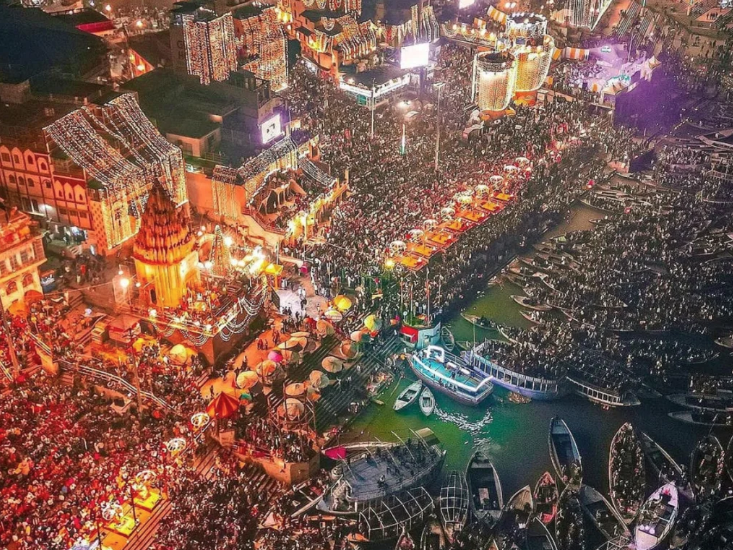
This year, Ayodhya’s Deepotsav on October 30 promises to be a mesmerizing event, with the banks of the Sarayu River lit by thousands of diyas. The atmosphere will be alive with bhajans (devotional songs), traditional dances, and the joy of devotees from across the country.
In Kashi (Varanasi), the celebrations continue with Dev Diwali on November 14. During this grand event, the ghats of the Ganges come alive with diyas, and pilgrims gather to pay homage to the divine. The serene river, reflecting countless lamps, creates a stunning view and a profound spiritual experience.
Eco-Friendly Diwali: Celebrating Responsibly
With increased awareness of environmental impact, more people are choosing to celebrate Diwali in eco-friendly ways. Here are some tips for a greener Diwali:
- Use eco-friendly diyas instead of plastic lights or candles.
- Limit firecrackers or opt for soundless crackers that reduce pollution.
- Recycle decorations or make DIY decor from biodegradable materials.
- Gift sustainable products to encourage a more conscious lifestyle.
An eco-friendly Diwali not only respects nature but also preserves the beauty of the festival for future generations.
Conclusion
Diwali 2024 offers a fresh opportunity to embrace tradition, honor loved ones, and reflect on the values that bring light into our lives. Whether you’re in India or celebrating from afar, Diwali is a reminder of the power of light, community, and gratitude. Let this Diwali fill your home with warmth, joy, and the beautiful glow of diyas, symbolizing hope and renewal.
As the world prepares to celebrate Diwali on October 31, 2024, may this festival bring prosperity, love, and happiness to all. Wishing everyone a joyous and sparkling Diwali!

